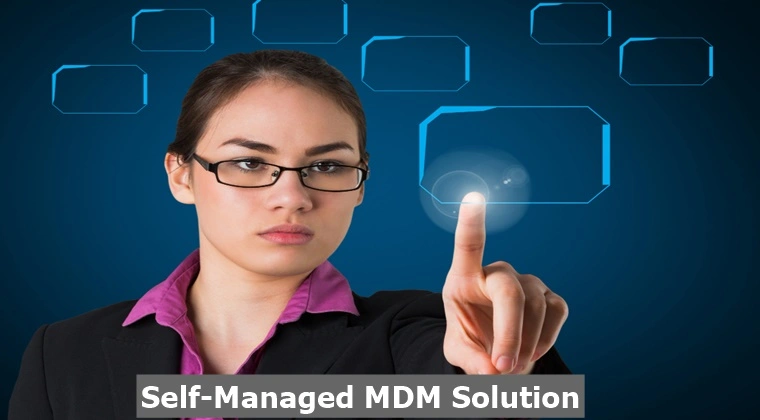Industry-Specific Considerations for Self-Managed MDM Solutions

The increased reliance of business organizations on Information Technology (IT) to perform daily life activities has led to the adoption of Mobile Device Management (MDM) solutions. This technology suite assists organizations to secure and manage digital devices and data/applications stored on them while providing greater control and visibility to upper management.
Organizations can implement MDM solutions in two ways, including in-house deployment or outsourcing it to a third-party service provider. However, this decision depends entirely on the organization's scope, the criticality of its data/operations, and its size.
This article focuses on industries that must implement self-managed MDM solutions by analyzing the nature, scope, size, and requirements of various industries.
Self-managed and Outsourced MDM Solution
The self-managed MDM solution is managed internally by the IT team on the premises of the organization. This type of MDM solution provides greater control over the devices but is quite expensive and difficult to manage.
On the flip side, outsourced MDM software is managed by third-party service providers and the organization pays for the services. This solution is cost-effective and saves time for employees to do core business operations but comes with several security challenges and limited control.
Application of self-managed MDM solutions
Here are some of the applications of self-managed MDM solution:
Healthcare
: The hospitals and healthcare organizations store and process sensitive information of patients that should remain confidential and private. On top of this, this sector is highly regulated by several regulations such as HIPAA and HITECH to ensure the security of Protected Health Information (PHI). In case of non-conformance, the organization faces huge penalties and fines that also impacts its reputation negatively.
In such a scenario, a self-managed MDM solution is effective as it helps in maintaining control over all the devices dealing with PHI while ensuring security and compliance with applicable standards and policies.
Moreover, this type of MDM solution allows hospitals to monitor the entire lifecycle of data and overall device from provisioning to decommissioning. This ensures that sensitive information of patients remains confidential at all stages of their lifecycle.
Apart from this, the in-house MDM solution makes sure that all devices are up to date with the latest software updates and security patches to combat cyberattacks. Lastly, it provides the IT team to install customized security protocols and access control mechanisms that could protect their sensitive data.
Government Agencies
These organizations deal with highly sensitive data including law enforcement records, classified information, and intelligence data that is critical for national security, therefore needs to be protected properly.
The self-managed MDM solution gives complete control over that data as it is managed in-house and none of the confidential information could be transferred outside of the organization. With this MDM solution, sensitive organizations can deploy their indigenously developed security protocols and authentication mechanisms to avoid security vulnerabilities of commercial off-the-shelf software.
Finally, it helps in achieving compliance with relevant regulations like the National Institute of Standards and Technology (NIST) guidelines and the Federal Information Security Modernization Act (FISMA) by blocking unnecessary applications and data-sharing functionalities.
Large Enterprises
The self-managed MDM solutions are ideal for large enterprises as they already have a well-maintained complex IT infrastructure with a huge number of employees.
Therefore, deployment and management of an in-house MDM solution are not problematic for these enterprises as MDM can be configured on existing servers with the help of the IT department. Some of the employees can be designated to manage in-house MDM solutions.
In contrast, an outsourced MDM solution is quite expensive in this case as these enterprises have a huge number of employees which means they need to manage numerous devices and pay for this subscription and other usage fees which becomes costly. Secondly, these organizations also process confidential information such as customer information, financial data, and intellectual property that need to be secured properly. With the help of self-managed MDM software, these organizations can deploy customized policies and security protocols for dealing with their unique challenges.
Apart from these, enterprises have a huge number of mobile devices with different OS, configurations, settings, and apps that increase their attack surface. Therefore, it is important for such organizations to implement customized stringent security policies and controls using self-managed MDM software.